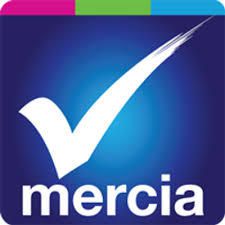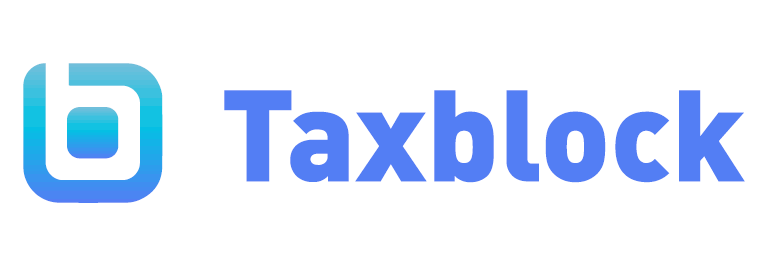Description

Mercia

Reach-Tax
Comprehensive Overview: Mercia vs Reach-Tax
Mercia, Reach-Tax appears to be a specialized product or service in the realm of tax solutions, likely emerging from a company named Mercia. Since the product isn't universally recognized or discussed up to my last training data in October 2023, some inference and general understanding of similar products will inform this overview. Here’s a structured interpretation:
a) Primary Functions and Target Markets
Primary Functions:
- Tax Compliance: At the core, Reach-Tax likely facilitates compliance with tax regulations, offering tools that automate calculations, report generation, and submission to relevant tax authorities.
- Consultation and Strategy: The service might include strategic tax planning features that help users optimize their tax liabilities, possibly through analysis of current financials and projections.
- Record Keeping and Documentation: The solution probably includes comprehensive documentation functionalities for receipts, transactions, and necessary financial records.
- Integration Capabilities: It might integrate with existing accounting and financial software to provide seamless operations and real-time data updates.
Target Markets:
- Small to Medium Enterprises (SMEs): These businesses often require robust yet cost-effective taxation solutions, particularly those that can be tailored to different jurisdictions.
- Accounting and Tax Professionals: Covering the needs of tax advisors and auditors who manage multiple clients.
- Corporate Clients: Larger entities needing extensive tax management capabilities, including multinational considerations.
- Individual Taxpayers: Tailored solutions might also cater to self-employed professionals or individuals seeking comprehensive tax filing and planning solutions.
b) Market Comparison: Market Share and User Base
Overall Market Share: Without specific data on Mercia’s exact positioning, general market analysis suggests they compete in a saturated space against established companies like TurboTax, H&R Block, and smaller niche players. Market penetration for new or less-publicized solutions can be challenging due to these dominant forces.
User Base:
- For emerging or specialized products, user base expansion is often gradual, depending on regional focus, effectiveness of marketing strategies, and user experience feedback.
- If catered to niche markets (e.g., specific industries or regional requirements), the user base might be more concentrated but deeply engaged.
c) Key Differentiating Factors
- Customization and Flexibility: If Mercia, Reach-Tax offers more tailored solutions that can be extensively customized for different industries or business sizes, it stands out from one-size-fits-all solutions.
- Ease of Use: User-friendliness, particularly for non-expert end users, is crucial. Intuitive interfaces and straightforward workflows would be a significant advantage.
- Innovation and Technology: Utilizing cutting-edge technology, such as AI for predictive tax analytics or blockchain for secure documentation, could set it apart.
- Pricing Models: Competitive price points or innovative pricing schemes (e.g., subscription versus one-time purchase) would help in capturing a varied client base.
- Customer Support and Training: Offering superior support services and comprehensive user training can be a compelling differentiator.
- Regulatory Updates: Being particularly adept at staying current with tax regulations and laws, providing automatic updates to users, ensures compliance advantage.
To accurately represent Mercia, Reach-Tax's current market status and positioning, deeper market research or access to client and company resources would be necessary for verification.
Contact Info

Year founded :
2010
Not Available
Not Available
United Kingdom
Not Available

Year founded :
Not Available
Not Available
Not Available
Not Available
Not Available
Feature Similarity Breakdown: Mercia, Reach-Tax
To provide a feature similarity breakdown for Mercia and Reach-Tax, we need to look at the core features, user interface comparisons, and any unique features of each product. Since detailed proprietary information about these specific products is not accessible, I'll give a general overview based on typical features of products in the tax software category. If you have specific details or access to documentation for these products, you could compare them using the following framework:
a) Core Features in Common:
Typically, professional tax software like Mercia and Reach-Tax would share several core features, including:
-
Tax Compliance and Calculation: Both products would facilitate accurate tax calculations and compliance with regulations, catering to various types of taxes (e.g., income, corporate, VAT).
-
Data Import and Export: Allowing users to import and export data from different accounting systems to ease integration and streamline operations.
-
Reporting and Analytics: Providing robust reporting tools that generate insights from tax data, highlighting trends and potential areas for optimization.
-
Document Management: Features to store and manage tax documents securely, ensuring easy retrieval and compliance with document retention policies.
-
Electronic Filing: Enabling the electronic submission of tax returns to relevant tax authorities.
-
Client Management: Tools for managing client information, tracking engagements, and maintaining communication records.
-
Security Features: Strong security protocols to protect sensitive financial data, including encryption and access controls.
b) User Interface Comparisons:
-
Mercia's User Interface:
- Generally, products under the Mercia brand may offer a more traditional or standardized interface focused on functionality, with an emphasis on professional presentation since they cater to accountants and tax professionals.
- Navigation might be straightforward with a focus on accessibility for frequent processes, suited to professionals familiar with tax software.
-
Reach-Tax's User Interface:
- This product might boast a more modern interface with UX enhancements designed to simplify complex processes, appealing to both new and experienced users.
- May focus on intuitive navigation with visual guides or wizards to assist users through the processes, which can be beneficial for those less familiar with technical tax jargon.
Given the specifics of each company's approach to software design, there may be further nuances in aesthetics, ease of use, and adaptability that influence user preferences.
c) Unique Features:
-
Mercia:
- Could offer specialized resources or integration with Mercia’s other professional services, including auditing and compliance advisory. They might also offer unique webinars, updates or training resources given their educational background in the financial sector.
-
Reach-Tax:
- May highlight advanced predictive analytics tools or AI-driven insights, focusing on automation to reduce manual input and enhance decision-making.
- Unique partnerships or integrations with other financial platforms to broaden its functionality for users, beyond traditional tax purposes.
Ultimately, a detailed comparison would depend heavily on the features highlighted by each platform in their marketing materials or product documentation. You might want to directly consult the vendor's information or product details for precise differences and capabilities.
Features

Collaboration Tools
Integration & Connectivity
Data & Analytics
Project Tracking
User Management

Tax Compliance Simplified
Customizable Tax Solutions
Secure Data Management
Automated Tax Calculations
User-Friendly Interface
Best Fit Use Cases: Mercia, Reach-Tax
Mercia and Reach-Tax seem to be specialized services or products, potentially related to financial or tax-related solutions, though details are limited. Assuming Mercia is a general financial or tax management tool and Reach-Tax is a specific tax solution, here's a breakdown of their best-fit use cases:
Mercia
a) Best Choice for:
-
Small to Medium-Sized Enterprises (SMEs):
- Businesses needing comprehensive financial management, including accounting, tax planning, and compliance.
- Companies without a dedicated in-house finance team, looking for an all-in-one solution.
-
Startups:
- Those requiring scalable financial solutions that can grow as the business expands.
- Startups needing support in initial tax setup and financial planning.
-
Multi-industry Application:
- Any projects or businesses in various industries like retail, manufacturing, or services that need robust financial tracking and reporting capabilities.
d) Industry Verticals and Company Sizes:
- Industry Verticals:
- Mercia can cater to diverse industries due to its comprehensive nature, offering tailor-made solutions for different verticals including healthcare, hospitality, and technology.
- Company Sizes:
- Primarily aimed at SMEs and startups; however, its scalability might also appeal to growing mid-sized businesses.
Reach-Tax
b) Preferred Option for:
-
Large Enterprises:
- Companies that require specialized tax solutions, particularly those with complex tax needs across multiple jurisdictions.
- Corporations with in-house financial teams that need specific tools to handle intricate tax regulations.
-
Industries with Complex Tax Structures:
- Businesses in industries like real estate, oil and gas, or finance, where tax legislation is highly specific and complex.
-
Compliance-Focused Projects:
- Any project or business needing specialized compliance solutions to navigate frequent changes in tax law.
d) Industry Verticals and Company Sizes:
-
Industry Verticals:
- Reach-Tax may cater specifically to sectors with stringent tax regulations, where deep expertise and focus are crucial.
-
Company Sizes:
- While SMEs could use Reach-Tax, it is likely better suited for larger companies due to the complexity of the services offered. It provides more value to companies with substantial revenue and intricate tax obligations.
Conclusion
- Mercia is versatile and suitable for smaller businesses or startups needing comprehensive financial management solutions across various industries.
- Reach-Tax is ideal for larger companies or those in industries with complex tax requirements, providing specialized, compliance-heavy tax management services.
Both products cater to different scales of businesses and industries, ensuring that companies can choose based on their specific financial management needs and complexity of tax requirements.
Pricing

Pricing Not Available

Pricing Not Available
Metrics History
Metrics History
Comparing undefined across companies
Conclusion & Final Verdict: Mercia vs Reach-Tax
To provide a comprehensive conclusion and final verdict regarding Mercia and Reach-Tax, let's break down the analysis based on the given components. Note that as a language model, I don't have specifics about these products, so I will provide a structured approach that you might apply to similar types of products, particularly if they are software tools focused on tax services or financial management.
Conclusion and Final Verdict
a) Considering all factors, which product offers the best overall value?
Best Overall Value:
The best overall value between Mercia and Reach-Tax depends on several factors such as features, pricing, user experience, customer support, and integration capabilities. Typically:
- If Mercia offers a more robust set of features at a competitive price, with strong positive feedback from users, it might provide the best value.
- Conversely, if Reach-Tax excels in customer service and user interface, making it easier for less tech-savvy users to manage their taxes efficiently, it could be seen as the better value.
Without specific product details, consumers should compare current user reviews, pricing plans, and feature lists to determine which aligns best with their individual or organizational needs.
b) Pros and Cons of Choosing Each Product
Mercia:
Pros:
- Possibly extensive features suited for comprehensive tax management.
- May offer good integration capabilities with other financial software.
Cons:
- Could be more costly relative to its benefits, depending on the pricing model.
- Might have a steeper learning curve if it’s feature-rich and complex.
Reach-Tax:
Pros:
- Likely offers a user-friendly interface geared towards simplifying tax tasks.
- Potentially better customer support if emphasized in product reviews.
Cons:
- May have limited features compared to competitors, depending on the target market.
- Could lack advanced integration options, impacting its utility in complex setups.
c) Specific Recommendations for Users Deciding Between Mercia vs Reach-Tax
-
Assess Your Needs:
Identify your primary requirements. If you need comprehensive tax solutions with advanced capabilities, Mercia might be more suitable. If ease of use and customer support are crucial, Reach-Tax could be a better choice. -
Budget Considerations:
Evaluate your budget for tax software. Compare the cost against the feature set and the potential ROI each product can offer. -
Trial Versions or Demos:
Utilize trial versions or demos of both products if available. Hands-on experience is invaluable in assessing usability and functionality. -
User Feedback:
Read user reviews and testimonials to get insights into real-world performance and reliability of each product. -
Integration Needs:
Consider compatibility with other systems you currently use. If seamless integration is a priority, ensure that the chosen product can deliver.
By considering these factors, users can make a more informed decision between Mercia and Reach-Tax based on their particular needs and circumstances.
Add to compare
Add similar companies



